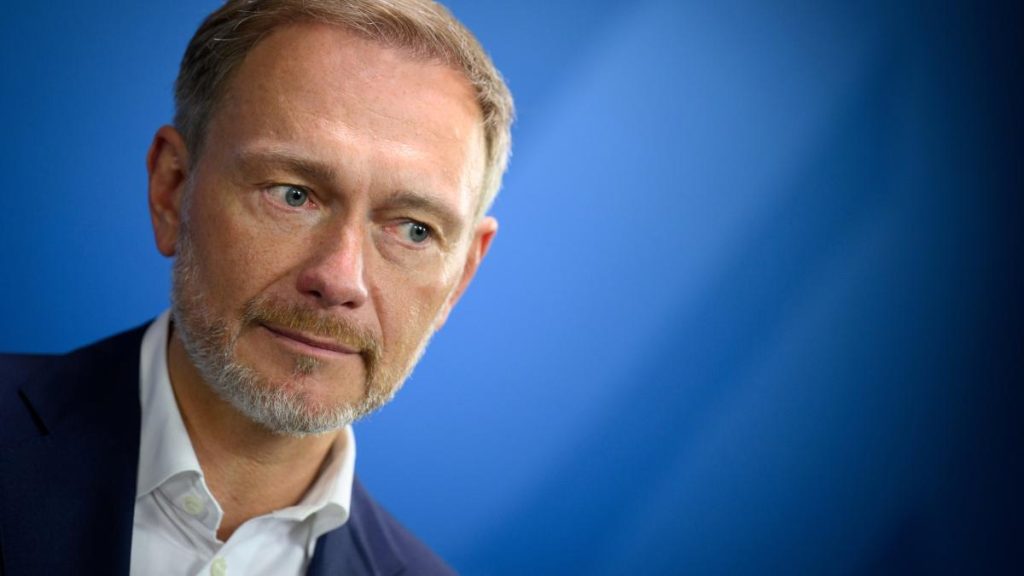Bundesfinanzminister Christian Lindner, a member of the FDP party, has come under fire for promoting the debt brake in a newspaper advertisement. Left party leader Martin Schirdewan accused Lindner of “misusing taxpayers’ money to indulge in his ideological hobby.” The advertisement, which appeared in the “Frankfurter Allgemeine Zeitung,” features the slogan “Schuldenbremse abschaffen? Nich’ ok, Boomer!” and argues that reducing debt today will create more opportunities for future generations. The ad cost almost 38,000 euros, with a second ad planned for publication.
Schirdewan criticized Lindner’s campaign as “political madness” and called for an investigation by the Federal Court of Auditors. He is also running as the top candidate for the Left party in the upcoming European elections. Disagreements over potential savings are causing tension within the Ampel coalition, with the Greens and SPD seeking to relax the debt brake, while the FDP opposes any changes. The Left party wants to abolish the debt brake altogether, further deepening the divide within the coalition.
Schirdewan accused Lindner of wasteful spending on an ideologically-driven advertising campaign while the Finance Minister is negotiating significant social cuts in the federal budget with Chancellor Olaf Scholz. Schirdewan emphasized the need for essential investments in the future without being constrained by the debt brake. The Finance Ministry did not directly respond to the criticism but pointed out that the debt brake is constitutionally mandated and contributes to intergenerational fairness. The Ministry highlighted the 15th anniversary of the Bundestag’s decision on the debt brake as a reason for raising awareness of its importance.
The controversy over the debt brake highlights the broader political differences within the coalition government and the differing priorities regarding fiscal policy. While some parties argue for easing restrictions to allow for more spending and investment, others prioritize financial discipline and debt reduction. The clash between these competing views reflects the complexities of governing and the challenges of finding consensus in a multi-party system. The issue is likely to remain a point of contention as the coalition navigates economic recovery and long-term planning.
The clash between Lindner and Schirdewan underscores the tensions between liberal and leftist ideologies in the context of fiscal policy and government spending. The debate over the debt brake represents a broader divide in political philosophy and priorities, with each side advocating for its vision of economic stability and prosperity. As the government grapples with these fundamental issues, the outcome will shape the direction of economic policy and the future trajectory of the country. Finding common ground and addressing the concerns of all parties involved will be crucial in moving forward and ensuring the stability and growth of the German economy.
The controversy over the debt brake and the related campaign by Lindner’s Finance Ministry raise important questions about the use of public funds and the government’s communication strategy. As political leaders seek to convey their policy positions and rally public support, they must navigate the delicate balance between effective messaging and responsible fiscal management. The scrutiny and criticism faced by Lindner highlight the challenges of governing in a highly polarized political environment and the need for transparency and accountability in decision-making. The outcome of this debate will have implications for the broader political landscape and the future direction of economic policy in Germany.


